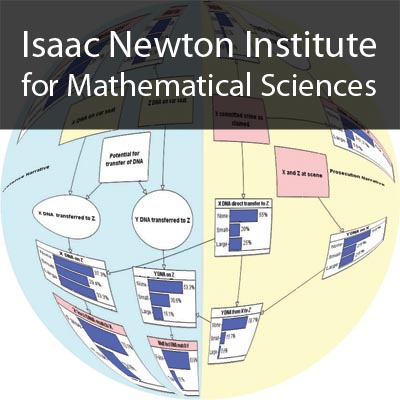Using Bayesian Networks to Analyze What Experts Need to Know (and When they Know Too Much)
51 mins 12 secs,
243.10 MB,
WebM
640x360,
29.97 fps,
44100 Hz,
648.26 kbits/sec
Share this media item:
Embed this media item:
Embed this media item:
About this item

| Description: |
Thompson, W
Thursday 29th September 2016 - 16:15 to 17:00 |
|---|
| Created: | 2016-10-06 17:34 |
|---|---|
| Collection: | Probability and Statistics in Forensic Science |
| Publisher: | Isaac Newton Institute |
| Copyright: | Thompson, W |
| Language: | eng (English) |
| Distribution: |
World
|
| Explicit content: | No |
| Aspect Ratio: | 16:9 |
| Screencast: | No |
| Bumper: | UCS Default |
| Trailer: | UCS Default |
| Abstract: | What is the proper evidentiary basis for an expert opinion? When do procedures designed to reduce bias (e.g., blinding, sequential unmasking) hide too much from the expert; when do they hide too little? When will an expert’s opinion be enhanced, and when might it be degraded or biased, by the expert’s consideration of contextual information? Questions like this are important in a variety of domains in which decision makers rely on expert analysis or opinion. This presentation will discuss the use of conditional probabilities and Bayesian networks to analyze these questions, providing examples from forensic science, security analysis, and clinical medicine. It will include discussion of the recommendations of the U.S. National Commission on Forensic Science on determining the “task-relevance” of information needed for forensic science assessments. |
|---|---|
Available Formats
| Format | Quality | Bitrate | Size | |||
|---|---|---|---|---|---|---|
| MPEG-4 Video | 640x360 | 1.94 Mbits/sec | 745.54 MB | View | Download | |
| WebM * | 640x360 | 648.26 kbits/sec | 243.10 MB | View | Download | |
| iPod Video | 480x270 | 522.12 kbits/sec | 195.80 MB | View | Download | |
| MP3 | 44100 Hz | 249.75 kbits/sec | 93.75 MB | Listen | Download | |
| Auto | (Allows browser to choose a format it supports) | |||||

